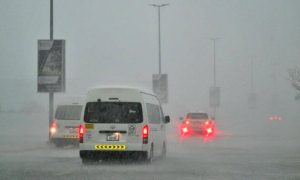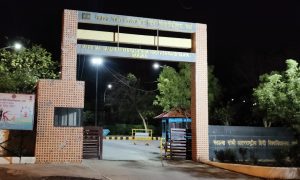Military action is actively advocated against Pakistan. The same is being demanded since the horrific Pulwama attack. People are of the opinion that only strong military action can deter Pakistan from misadventures in the future.
Yes, military action is imperative today. Pakistan needs to realize that it cannot kill our soldiers in a cowardly fashion and get away with it. The signals from the Narendra Modi government are quite clear: Military action will be taken, however, in what form it’ll be so is unclear which is apt. There should be no two thoughts about the use of military force to avenge our martyrs in Pulwama.
Having said this, the motive of this article is to read into whether the Modi government is beginning to get it right in punishing Pakistan.

Why Hasn’t Military Action Disciplined Pakistan?
We’ve fought four wars against Pakistan and defeated them in every single one, and yet, Pakistan continues to use sub-conventional means to bleed India. One would think that four losses would quieten Pakistan forever but clearly that hasn’t happened even though one war was under the nuclear cloud post Pakistan-sponsored terrorism began. Not to forget that we’ve even cut Pakistan in half in 1971, and yet Pakistan prefers to poke us ceaselessly with its ‘bleed India by a thousand cuts’ policy.
The logical question that hence arises is – Can military action actually tame Pakistan?
Before moving further, let’s talk of voices today to divide Pakistan into four similar to what happened in 1971. The first counter question that arises is: Will the world allow such a prolonged war that leads to the division of Pakistan? Highly unlikely. And the second: How long before Indian forces press deep into Pakistani territory does the nuclear threat become genuinely tenable?
The point is that in today’s highly interconnected, geopolitically active and nuclear world, a war that breaks Pakistan is nearly impossible. There have to be other ways, and there are as well.
The nuclear umbrella that Pakistanis often talk about is not for its people but rather for the high-ranking Pakistani army generals. Why four wars and a surgical strike haven’t been completely effective in taming Pakistan is because for these Pakistani generals the Pakistani soldier is dispensable. The ordinary troop died in these conflicts while the generals ruled on. They never lost anything, on the contrary, they gained as more money poured into their coffers to fight India.
Military action can have a deep impact if and only if it is combined with economic, diplomatic and riparian offensives. And military action too has to be targeted at the masters of terror rather than just the pawns. When these masterminds are neutralized will the Pakistani army, the ISI and its terror outfits feel the heat. It seems that this time around something similar will happen.
Let the Pain Originate at the Bottom
The Pakistan army has conducted numerous coups and never faced anger of the public. For the Pakistani public, their army is supreme, and what the army says is unquestionable. It is the unwavering support of the people that allows the army to do what it does.
Definitely the brunt of previous wars has fallen on the Pakistani public, but their determination to wage war repeatedly against India even in lost causes overwhelms the pain of wars. This comes primarily from the way they’ve been mentally conditioned by the media – which is essentially a spokesperson of the Pakistan army – to believe in the following:
- Pakistani forces are capable of defeating India
- Pakistan hasn’t lost previous wars against India
- Kashmir is rightfully theirs
- Hindus’ final objective is to defeat Pakistan and rule over Muslims
During war times, every nation’s public stands with its forces, but, what about when there is no war and yet the common man is under agony? Will a people still support their government or the forces?
As said earlier, India has shown Pakistan its place again and again when it comes to conventional battles. But what India hasn’t done is combine military action with other steps that cause pain to Pakistan from top to bottom. This may sound harsh but it is true. Let alone everything else we didn’t even keep the land we captured after our victories! Then how can we expect Pakistan to learn any lesson or feel long-lasting pain?
Wage a war; get defeated, not a problem because the soldiers are expendable; face economic and weapons crisis; get aid and recover; continue with proxy war.
This cycle continues because the Pakistani generals sit rich and easy while the public backs them for waging war – even if the war is lost – against an enemy country for a ‘just’ and ‘holy’ reason which is acquisition of Kashmir.
What needs to be done is to shatter this justification that the Pakistani leadership enjoys from its public. And this can be done only in one way – Let the pain originate at the bottom during times when no war is being fought.
The Narendra Modi government has withdrawn the MFN which has resulted in reduction of exports from Pakistan to India for a variety of products especially cement and dried dates. This has not only economically hurt manufacturers but everyone along the supply chain till the transporter who takes the final commodity to the border or port. Truckers are lined up at the border for many days now. They are suffering losses and asking the government as to who will pay for the same. The pain is being felt by the common citizen.
The diplomatic offensive and the unceasing efforts to isolate Pakistan on the international stage launched by the government play a crucial role. When a nation stands alone – barring a handful of countries who provide alms in times of need – the economic condition of a nation is affected. This damages the credibility of the country as an investment destination which leads to lower FDI which in turn means lesser opportunities for the common citizen to grow and results in unfulfillment of basic necessities. For example, South Korea is actively involved in energy projects in Pakistan. When India asks Korea to stop funding such projects – which it successfully did a few years back – then it is common citizen who feels the pinch due to unavailability of dependable electricity for personal and business purposes.
One major decision by the government was to stop excess flow of water under the Indus Water Treaty to Pakistan. This was openly announced post the Pulwama terrorist attack but work to tap and harness excess water began in 2016 itself. This step is by far the strongest and most impactful till now.
The city of Lahore depends heavily on the river Ravi which is one of the three rives that India has unrestricted use to under the IWT. The government has explicitly said that it’ll divert its waters for the benefit of its own citizens rather than letting it flow into Pakistan.
One small example of how such moves affect Pakistan: There were leakages in the Indira Gandhi canal in Rajasthan for many years. The intelligence agencies informed the previous government but it didn’t take any action and let the water flow into Pakistan which meant a bountiful harvest for Pakistani farmers but trouble for Indian farmers. The Narendra Modi government began working to plug the leakages in 2015, and in 2017 when the waters stopped flowing into Pakistan its farmers suffered crop failure.
Pakistan is reeling under water shortage. A report said that by 2019-end, many regions in Pakistan will go dry, and by 2025 almost the entire country will face severe water problems. Balochistan is one region that is particularly impacted by this. In such a scenario, India’s decision to stop the flow of surplus water into Pakistan will wreak havoc in the country. The common citizen will be affected, and it is then that they’ll begin to question the government and military leadership about their policy to constantly focus on hurting India and not first build a better life for its own people.
Only when the ordinary Pakistani starts to feel the repercussions in daily life of its military and civil leadership’s decisions to make Kashmir and anti-India sentiment the nucleus of its functioning will they start to rise against them. Only then will the leadership feel the pressure. Yes, Pakistani army uses brute force against Balochis, but to what extent can it do the same if unrests begin to arise in its major cities and become widespread? Civil unrest within the country’s heartland cannot be ignored or stomped upon like the dissatisfaction and anger in Balochistan is trampled.
The approach adopted by the current government is much more pragmatic and will have long-lasting effects because it is a holistic one. There are various measures being taken to punish and isolate Pakistan, and then when it is down on its knees will the military punch be dealt.
By the time India decides to exercise the military option, Pakistan will be diplomatically isolated, economically under severe pressure and tense over how to deal with the brewing situation of water shortage. The impact of the military action will thus be much greater.
The one hope is that measures outside the military spectrum will continue to be employed in their full force irrespective of whether a terrorist attack happens or not.
This comprehensive approach to hit Pakistan diplomatically, economically, militarily, under the legal ambit of IWT, and by targeting its paid stooges in India like the Hurriyat while purging the Valley of terrorists is what should’ve been done long back, preferably after the 2008 Mumbai Attack. But even though late, it is heartening that it is eventually happening.




























 WhatsApp us
WhatsApp us
Pingback: Research
Pingback: nhạc con lợn
Pingback: marijuana stocks
Pingback: pink rolex replica
Pingback: digital marketing agency Hong Kong
Pingback: uniccshop.bazar
Pingback: fun88.viet
Pingback: maha pharma injectables
Pingback: คอนโดเงินเหลือ
Pingback: evolution brokers review
Pingback: bitcoin era online
Pingback: Keltec Guns for Sale
Pingback: RPA vs automation
Pingback: Intelligent Automation
Pingback: Automated Regression Testing
Pingback: wigs
Pingback: 토토패스
Pingback: FUL
Pingback: LASER 3D PRINTING
Pingback: www.squeeqee.co.uk/carpet-cleaning-dunstable
Pingback: housing market
Pingback: 20 Completely Free Spins on Irish Luck - NO DEPOSIT REQUIRED!
Pingback: rolex air king replica
Pingback: คาสิโนออนไลน์เว็บตรง
Pingback: oooops_chaturbate
Pingback: DevOps as a service
Pingback: สล็อตวอเลท
Pingback: buying mushrooms in colorado
Pingback: maxbet
Pingback: Psilocybe Mexicana Mushroom ,
Pingback: ketamine treatment
Pingback: buy 4-aco-dmt online video,
Pingback: bulut sunucu
Pingback: buy golden teacher mushroom online canada
Pingback: sleep music